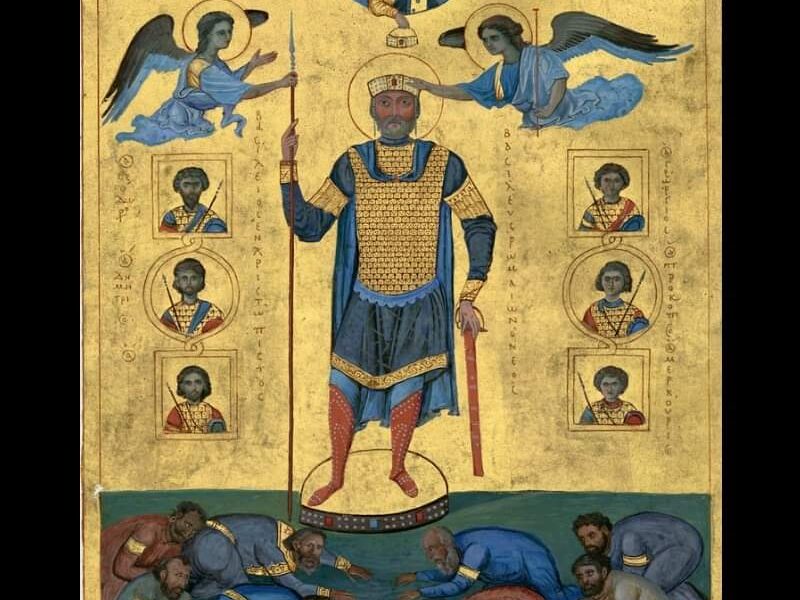Born in Constantinople and from the Macedonian Dynasty, he was the longest reigning Byzantine Emperor, from 976 to 1025. The Bulgar Slayer (958 - December 15, 1025)
A Great General and a Master of War, he subdued the Empire’s enemies within, putting an end to the civil wars which had plagued it. What followed was the campaign against the caliphates which saw the Empire expand eastwards, as well as gain parts of Crimea.
Basil also distinguished himself as an administrator, reducing the influence of the wealthy land owners of the Empire, achieving the re-organisation of the military and improving the finances of the Empire, allowing it to continue to flourish for the decades after his death.
His actions north of the borders of the Empire, with the marriage of his sister Anna to Vladimir of Kyivan Rus, greatly influenced the Christianisation and mass conversion to Orthodox Christianity of the Slavs.
His battles against the Byzantine Empire’s other main adversary, the Bulgarians led by Tsar Samuil, are also legendary. After decades of wars, the decisive battles of 1014 led to the subduing of the Bulgarian threat.
Basil completely routed the Bulgarians, taking 15,000 prisoners. Basil then divided the prisoners into groups of 100, blinded 99 of them, leaving 1 man in each group with one eye, so that he could lead the others back to Bulgaria. Leading to his nickname.
It is said that following the victory, Basil headed to the Parthenon in Athens, then a Byzantine Church, to give thanks at the Church dedicated to Παναγία η Αθηνιώτισσα.
Basil was preparing for the recovery of Sicily when he died, having had the longest reign among Byzantine emperors. At the time of his death, the Empire stretched from southern Italy to the Balkans, the Caucasus and from the Danube to the Levant.

